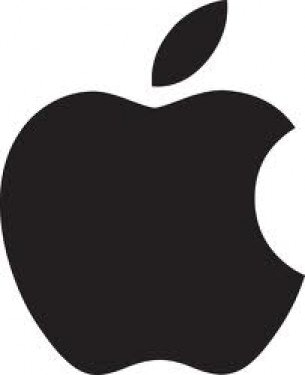If we are in the middle of the Apple Inc (NASDAQ:AAPL) Renaissance, then we are also in the middle of the Dark Ages of Dell Inc. (NASDAQ:DELL) and Hewlett-Packard Company (NYSE:HPQ). And I am not merely drawing a metaphor to the overall market sentiment. Both of these companies had a game plan for a future devoid of tablet and cloud computing. A now is the time of reckoning.
Okay, maybe I’m being melodramatic, but there are big-timers who agree. As we discussed previously, legendary short-seller Jim Chanos recommended Hewlett-Packard Company (NYSE:HPQ) as a short sell idea, calling the company a “value trap,” and share prices have only decreased since that interview earlier in July. At roughly the same time, Tiger Cub Phillipe Laffont likened HP to Eastman Kodak Company (EKDKQ)—a comparison that should send chills down the spine of HP investors.
Things are not much better for Dell Inc (NASDAQ:DELL). David Einhorn claimed in the fourth quarter that Dell’s P/E “reflects a valuation usually associated with collapsing businesses.” As his fund Greenlight Capital exited the position in the second quarter 2012 at a loss, Einhorn said the Dell’s businesses “proved to be a disappointment” (see Greenlight’s portfolio here).
Dell’s and Hewlett-Packard’s valuations certainly look cheap. Hewlett-Packard’s shares are trading at 4.6 times S&P’s 2012 earnings estimate, while Dell shares are trading at 6.3 times the same period’s estimated earnings. Hewlett-Packard is trading at about 0.84 times book value, while 2.1 times book. Both have a price-sales ratio of about 0.3.
The question is whether restructuring efforts will save the problematic businesses at these companies. PC sales are not what they used to be. According to research firm Canalys, HP underwent a 11.3 percent decline in PC sales year-over-year in the second quarter 2012, and Dell did not come in much better with a 10.9 percent decrease. When gross PC sales increase 12 percent overall, these declines are problematic. I should mention that Apple Inc (NASDAQ:AAPL)’s PC sales increased 60 percent in the same period.
One ZDNet commentator speculates that Microsoft VP Frank X Shaw’s words alluding to “our new family of PCs” (not just tablets?) and the company’s 10-K referring to “our Surface devices” (note the plural) point to a potential family of Microsoft PCs. This addition to the PC market would further hinder PC sales for Hewlett-Packard Company and Dell Inc., names that Microsoft seems to implicitly think are not representing the company’s Windows operating system.
Then, there are the post-PC realities such as cloud computing and tablets. Apple Inc. (NASDAQ:AAPL), Samsung Electronics, and Amazon.com, Inc. (NASDAQ:AMZN) have an 82.8 percent market share collectively as of the second quarter 2012. Apple and Samsung saw a market share growth of 84 percent and 118 percent year-over-year, respectively. Needless to say, a solid entry into the tablet market will be challenging for both Dell and Hewlett-Packard.
We think that the greatest potential for both companies lies in the expansion of their enterprise-level computing. The consumer tablet market is extremely competitive, but there is yet to be a go-to enterprise solution among tablets. Hewlett-Packard’s restructuring effort is leading it away from its Personal Systems Group (PSG) and towards enterprise solutions that are “about solving customer problems” (see the introduction to annual report company). Like Hewlett-Packard, Dell is beginning to focus on software solutions and, in 2011, derived 50 percent of its gross margins from enterprise solutions.
What are the prospects for a rebound? Should we call a bottom yet to either of these companies? To begin, Dell and HP announced their plans to launch new Windows-RT OS tablets directly following the release of the much-anticipated operating system. As the mobile version of Windows 8, Windows-RT will compete with Apple’s tablet sales, which are predicted to be around 19.5 million in the third quarter 2012, up from 17 million in the previous quarter. This release is timely: our analysis indicates that Apple’s earnings guidance implies a major product release in the third quarter (and no product release will mean a significant disappointment). The market is competitive, but the apparent commoditization of tablets will bode well for an entry into this all-important market.
An iPad mini release is also a live possibility for late 2012. This means that the $199 tablet price-point will not be safe from Apple Inc. (NASDAQ:AAPL)’s reaches; the iPad mini is likely to sell for well below the $499 price-point for the normal iPad. If they are to remain afloat in the consumer arena, Dell Inc. (NASDAQ:DELL) and Hewlett-Packard Company (NYSE:HPQ) need to have tablet solutions at this price-point while expanding their enterprise software and hardware solutions.



